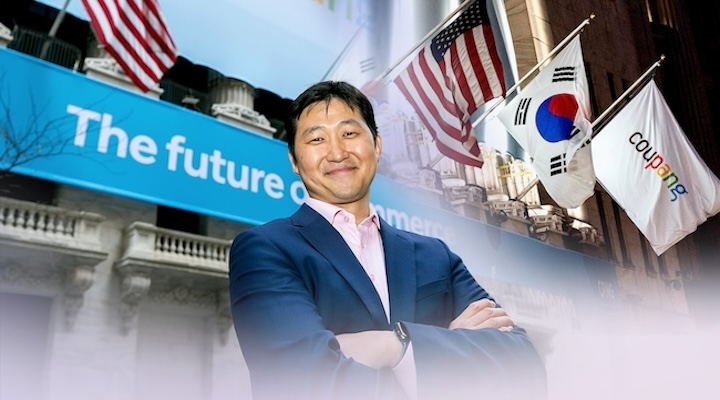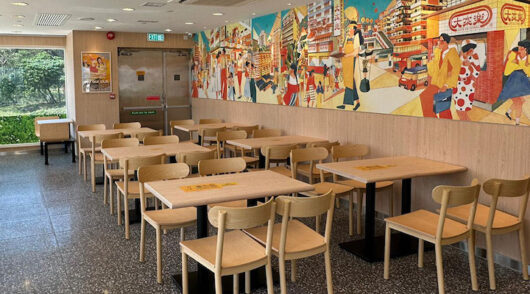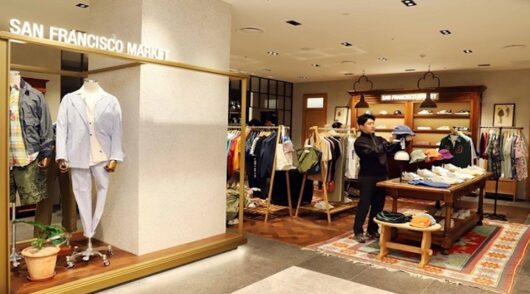As it approaches its third year of being listed on the US stock market, South Korean e-commerce giant Coupang is generating buzz with expectations of its first-ever profit.
However, the company faces intensifying competition with the entry of Chinese shopping platforms like AliExpress, raising concerns about the slowing growth of the Korean e-commerce market. Additionally, Coupang is grappling with challenges such as worker overwork controversies and disputes over fees with its suppliers and merchants.
Founded in 2010, Coupang has benefited from the growth of South Korea’s e-commerce market as well the surge in demand following the onset of the pandemic. According to a distribution industry report from January 10, Coupang has invested US$4.7 billion in developing a comprehensive nationwide logistics network.
Coupang’s ability to predict customer orders using AI and pre-stock items at fulfillment centers has enabled same-day and next-morning deliveries.
The company’s expansion of its Rocket Delivery service to cover 80 per cent of all cities, counties, and districts nationwide, along with a broader range of direct-purchase items, has been instrumental. In March of last year, Coupang also launched its ‘Rocket Growth service, extending its rapid delivery to general seller products.
The company’s ‘lock-in effect’ strategy, which ensures that once a customer uses Rocket Delivery, they keep coming back, has helped the company maintain profitability for five consecutive quarters.
In its third-quarter performance report last year, Coupang announced, “We have surpassed 20 million customers, with a quarterly revenue of $6 billion and an operating profit of $874.811 , signaling a likely first annual profit since our inception in 2010.”
This success has led to a reshuffling in the retail market, transitioning from ‘E-Mart-Lotte Shopping-Coupang’ to ‘Coupang-E-Mart-Lotte Shopping’, based on revenues from the first three quarters last year.
Despite this growth, concerns remain over new business risks, slowing e-commerce market growth, and competition from Chinese online shopping platforms like AliExpress.
Coupang has been actively expanding into new ventures such as Coupang Eats (food delivery), Coupang Play (online video service), and its Taiwan expansion. However, these areas face stiff competition from established players, necessitating further investments.
Notably, Coupang’s recent acquisition of the world’s largest luxury fashion platform, Farfetch, for $500 million has raised questions about its ability to sustain a supply of luxury products, especially as top brands increasingly focus on direct online sales.
Moreover, Coupang’s ‘active customer count,’ which exceeds 20 million, is facing a significant slowdown in the growth of the e-commerce market. The online retail market growth rate in South Korea plummeted from 20 per cent in 2021 to single digits (8 per cent) in the third quarter of last year.
Chinese online shopping malls like AliExpress and Temu are rapidly gaining Korean customers with their ultra-low prices. According to WiseApp, AliExpress and Temu were the top two apps with the highest increase in Korean users last year.
Coupang also faces significant post-growth challenges, including labor disputes and fee conflicts with suppliers.
The company’s stance remains firm amidst ongoing disputes with labor groups and controversies over worker deaths for night and early morning deliveries. The Ministry of Employment and Labor reported that cardiovascular diseases (47.7 per cent) and cerebrovascular diseases (34.3 per cent) are the leading causes of work-related deaths in the distribution and logistics industry.
Controversy surrounds Coupang’s commission rates from suppliers. A Fair Trade Commission survey released last December showed that the real commission rate for online shopping malls was 12.3 per cent.
However, Coupang’s rate was the highest at 27.5 per cent, more than double the industry average, though it includes services like storage and direct delivery of supplier products.
Recently, Coupang has also taken legal action against a media outlet over reports regarding its maximum commission rates.
Coupang has also faced confrontations with manufacturers like CJ CheilJedang and LG Household & Health Care over the supply prices of key products such as Hetbahn ready-to-eat rice.
This story was originally published by Ashley Song, via Korea Bizwire.






